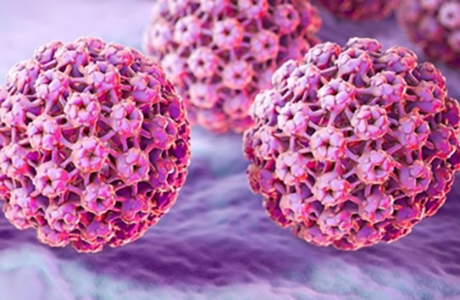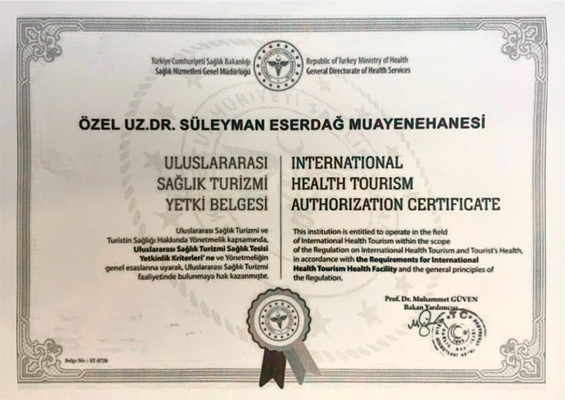Genital warts are one of the most common types of sexually transmitted infections in men and women. They appear especially with the beginning of sexual activities. Genital warts are caused by a virus known as Human Papilloma Virus (HPV). Today, there are 170 different types of HPV, which is a DNA virus; however, 90% of genital warts are caused by HPV Type 6 and HPV Type 11.
After women become sexually active, they become much more likely to encounter HPV, which causes warts. Today, genital wart can be treated with different methods. In this section, the topic titles that come to the fore are “How are genital warts treated? Dugs used for genital wart treatment; and Laser treatment for warts and prevention methods.”
Some basics to know about genital warts and their treatment:
- Genital warts affect both men and women, but women are more prone to this disease.
- Genital warts cause cosmetic problems and can be easily transmitted to the partner. However, it neither cause cancer nor has no cancerous properties. This is because HPV types 6 and 11 are not carcinogenic.
- Although genital warts are treatable, they may cause discomfort and psychological problems due to their recurrent nature.
- If genital warts are not treated properly, they can spread and become much more annoying.
- Even if the warts are completely cured with genital wart treatment, the HPV virus that settles in the subcutaneous tissues maintains the risk of transmission to the partner. Treatments involve the treatment of the wart only, and HPV is still incurable in today's conditions. However, the virus can be removed from the body with the help of a strong body immune system.
- Having sexual intercourse before the genital warts are treated significantly increases the risk of transmission to the partner.
What is “genital wart”?
Genital wart is a skin disease that manifests itself as soft tissue lumps in the genital area. It can be observed as bumps with cauliflower-like appearance or flat elevations. It can cause complaints such as mild pain, uneasiness and itching. Genital warts are caused by non-carcinogenic, low-risk HPV types 6 and 11. These HPV types differ from the high-risk types, which cause cellular disorders or cervical cancer in the cervix.
Do genital warts cause cancer?
High-risk types of HPV infection can cause cervical (cervix),vaginal, vestibular, anal and oropharyngeal (throat-pharynx) cancers in women. It can rarely cause penile cancer in men. However, since genital warts are caused by low-risk HPV types, they do not cause cancer or transform into cancer. Treatments play a key role in the elimination of the infection. It should be kept in mind that HPV may persist despite the treatment of the lesion.
What are the symptoms of genital warts?
Genital warts can be transmitted to the partner through vaginal, oral, or anal sex. It can also be transmitted through a superficial sexual act, which involves only friction, not a complete sexual penetration (copulation). Therefore, it can also be observed in virgins. The development of warts may begin weeks or months after being infected with the HPV virus. Therefore, it is not possible to know exactly when the patient was exposed to HPV.
Genital warts may be too small to be seen with the naked eye, or they may appear as slightly dark raised bumps. Their appearance is similar to that of skin tags; however, they differ from skin tags with their slightly harder structure, and they spread rapidly on the skin surface. Most people are not even aware of the warts they bear on their bodies.
The tops of some warts are soft and swollen, and may be in the form of single or multiple clusters. Genital wart in women can be seen in the cervix, inside the vagina, at the vaginal introitus, on the labia minora, labia majora, clitoral hood, between the vaginal introitus and the anus (perineum),and inside and around the anus. In men, it can be seen in the penis, scrotum, groin, thigh, and inside and around the anus. Genital warts in a person with HPV can also spread to the lips, mouth, tongue, or larynx area of the partner through oral sex.
What kind of complaints does it cause?
Most often it is asymptomatic, in other words, it does not cause any complaints. They can remain passive for months or even years. Sometimes they are too small to be seen. Sometimes they can form big clusters that can reach the size of a tennis ball. In women, they mostly cause vaginal discharge, itching, bleeding and burning complaints. When they growth, they can cause problems that involves pain and discomfort. Genital warts can also cause psychological problems including abnormal mood changes and depression. There are many couples who have marital problems due to this disease. Therefore, treatment of genital warts should be started immediately after diagnosis.
What are the causes of genital warts?
HPV is the cause of most cases of genital warts. Approximately 30-40 HPV types affect the genital area in particular, while a few of them cause genital warts. The contagiousness of HPV, which is quite high, occurs by skin-to-skin contact. A sexually active person is very likely to be exposed to HPV in his/her lifetime. However, the virus that affects the person does not always produce genital warts. In most cases, the warts disappear spontaneously, causing no health problems.
What are the risk factors for genital warts?
A sexually active person is very likely to be exposed to HPV in his/her lifetime. However, the factors that increase the risk of HPV exposure also include being under the age of 30, smoking, having a weak immune system, and being born to a mother who is a HPV carrier during pregnancy.
How is genital warts diagnosed?
Genital warts are diagnosed during routine gynecological examinations. Before the examination, questions are asked about the history of sexual intercourse, whether the partner has such a complaint, and the way the symptoms began. All the regions are checked in detail during the examinations. The internal genital organs including the cervix and vagina are also examined with a speculum examination. The use of diluted acetic acid solution during the procedure makes it easier to see the warts by whitening them. When necessary, HPV test is also performed by taking swabs from the cervix or external genital area. Although warts do not involve the risk of canceration, a smear test should also be performed to investigate whether there are cellular changes in cervical tissue due to other HPV types. Especially in women who carry HPV, smear test is a life-saving test for early diagnosis of cancer and pre-cancerous lesions.
If high-risk HPV types are found in the cervix during the HPV test or if adverse cellular changes are detected during the smear test, it may also be necessary to examine the vagina and cervix, using a colposcopy camera. On the other hand, since individuals exposed to HPV are in the risk group for sexually transmitted diseases, they should be examined for other sexually transmitted diseases as well.
- Detailed gynecological examination
- Smear Test
- HPV DNA Test (It is performed when necessary. It is a PCR test performed with cervical swab)
- Colposcopy (in those diagnosed with a pathological condition during the smear test) • Sexually transmitted disease panel: . Blood tests (HBsAg, Anti HIV, Anti HCV, VDRL). Cervical swab tests (for microorganisms such as Chlamydia, Bacterial Vaginosis, Ureaplasma, Neisseria)
Tests performed on people at risk for HPV virus and sexually transmitted diseases.
How are genital warts treated?
Genital warts can often disappear spontaneously over time, remain inactive in the skin tissue without proliferating for years, or proliferate rapidly and spread to different areas. Sometimes they may reappear from time to time despite the treatments. This is because physicians treat the warts but HPV can settle under the skin and cause warts again and again, especially during immunosuppression periods.
If there is a wart in the genital area, it should be treated quickly without delay. However, the infectivity can survive even if the lesions are completely eliminated. Although condom use may a little bit reduce the risk for infection, it does not completely eliminate the risk of transmission.
Medications Used In The Treatment Of Genital Warts
Imiquimod, podophilin, trichloroacetic acid and sinecatechins are among the most commonly used drugs prescribed for the treatment of genital warts.
Imiquimod (Aldara cream): It is in the form of cream and is used in long-time treatments. Imiquimod acts by locally improving the immune system. Sexual intercourse with the partner immediately after application of the cream should be avoided due to its irritating effect. Imiquimod can cause side effects such as rash and blisters on the skin, pain in the body, cough, redness and weakness.
Podophyllin: It an herbal solution that causes burning. It should be applied by a physician because it can cause skin damage when used by the patient herself. It is not used during pregnancy.
Podofilox: is a solution that can be applied at home. Its content is the same as that of Podophyllin. It should never be applied to areas inside the vagina. It is not used during pregnancy. It has side effects such as skin irritation and pain.
Trichloroacetic acid: It is a chemical solution used to treat internal and external genital warts. It has side effects such as skin irritation, pain and burning.
Sinecatechins: It is a cream used in the treatment of lesions around the external genital area and anus. It has mild side effects such as redness, itching, burning, and pain.
Medical Interventions In The Treatment Of Genital Warts
Different procedures can be performed to destroy the wart tissue. Especially for genital warts which tend to spread and form clusters, such interventions are indispensable. Compared to the aforementioned drug treatments, such interventions can solution in shorter periods of time.
Cauterization of genital warts: Treatments intended for the cauterization of genital warts are performed by cauterizing the warts using tools called ‘cauterizers’ after mild local anesthesia. Electric cauterization of genital warts can leave scars on the skin.
Cryotherapy for Genital Warts: It treats genital warts by freezing them off. Genital warts are frozen using cryotherapy devices called ‘histofreezer'. Liquid nitrogen is used in the process of freezing. It may be necessary to repeat the procedure in several sessions. Excessive application may cause hypopigmentation (lightening) on the skin. Redness and sometimes blisters can be observed in the application area.
Laser treatment for genital warts: Genital warts can be treated with carbon dioxide and erbium:YAG lasers in particular. Laser treatment for genital warts offers some advantages over other treatment procedures.
How is the laser treatment for genital warts performed?
First, all the lesions are located. Then, local anesthetic is injected into the lower parts of the lesions, using fine-tipped needles. Then, laser shots are fired at the warts with a ‘pen’ shaped probe. Laser has a destructive (ablative) thermal effect on the tissue. In this way, all lesions can be removed in a short time by means of the laser light that turns into heat in the tissue.
Laser treatment for genital warts in Istanbul and Ankara
Laser treatment for genital warts can be performed at our Istanbul and Ankara clinics. In Istanbul, we use the carbon dioxide lasers called MonaLisa Touch and FemiLift for the laser treatment of genital warts. In Ankara, genital warts are treated with another fractional carbon dioxide laser called Bela Dona.
Especially in recent years, laser treatment for genital warts, which provides some advantages over other procedures, has been one of the procedures most commonly preferred by patients. These advantages are as follows:
- Laser treatment for genital warts is quite painless.
- It leaves no scar. The laser light acts directly on the targeted tissue, so it does not damage the surrounding tissues.
- Especially in the removal of flat lesions, it spreads over the tissue surface, and destroys the warty part only.
- The treatment session is quite short. The sessions of laser treatment for genital warts generally takes less than 5 minutes, even in the removal of lesions which tend to spread widely.
- Laser treatment generally makes it possible to get rid of all genital warts after one or two laser sessions.
Surgical excision: Surgical intervention may become necessary for the treatment of large lesions in the form of advanced clusters. Operations can be done under local or sometimes under general anesthesia.
Treatment Of Genital Warts During Pregnancy
Due to the weakening of the body’s resistance during pregnancy, the amount of genital warts may increase. Laser and cryotherapy can be used for the treatment of genital warts during pregnancy. If the warts are so widespread that they reach inside the vagina, the delivery method should be cesarean section. Otherwise, HPV reaching the baby through the birth canal may cause serious health problems in the newborn.
Genital wart treatment costs in Istanbul and Ankara
Genital warts treatment costs in our Istanbul and Ankara clinics vary depending on the extensiveness of the lesions, the treatment procedure to be performed, the laboratory tests required, and the anesthesia methods. It would be useful to consult the clinic to get information about the cost.
Methods Of Protection Against Genital Warts
The best method of protection against genital warts is vaccination. HPV vaccine should be given before being exposed to HPV, even before the first sexual intercourse. After being infected with HPV, vaccination has no curative effect. It is important to seek treatment without delay after being infected with HPV, and to take precautions before the lesions spread excessively. Condoms used for protection during sexual relations also protects against many sexually transmitted diseases besides HPV.
After HPV Treatment
It is of extremely importance to take measures to increase body resistance after being infected with HPV and treated for genital warts. These are as follows:
- Having regular sleep,
- Avoiding stress factors,
- Losing weight with a suitable diet if there is an excessive weight problem,
- Doing exercise regularly,
- Avoiding bad habits such as smoking and alcohol use,
- Eating a well-balanced diet,
- Benefiting foods and drugs that improves body resistance.
Genital wart treatment in Istanbul and Ankara
Genital wart treatment can be performed at our clinics in Istanbul European Side (Nisantasi),Istanbul Anatolian Side (Bagdat Caddesi) and Ankara (Kavaklidere). Wart treatments with carbon dioxide lasers are the ones we most commonly perform at our clinics to treat genital warts in men and women.
Treatment sessions take 5 minutes on average. Generally, one or two sessions are adequate. Patients are invited for a free control examination one month after the first session. Treatments involving the use of acids or a histofreezer (for freezing off the warts) can also be performed when necessary. Surgical procedures are preferred for the treatment of large lesions that cover an extremely wide area. When necessary, we can perform HPV typing tests, smear tests and all tests related to sexually transmitted diseases on our patients.
In many patients, genital wart treatment gives rapid results. Because delaying the problem will cause the lesions to grow, spread and infect other people, treatments should not be delayed. Our patients who consider receiving genital wart treatment at our Istanbul or Ankara clinic can call or text us through our clinic’s WhatsApp line +90 530 763 34 00.




